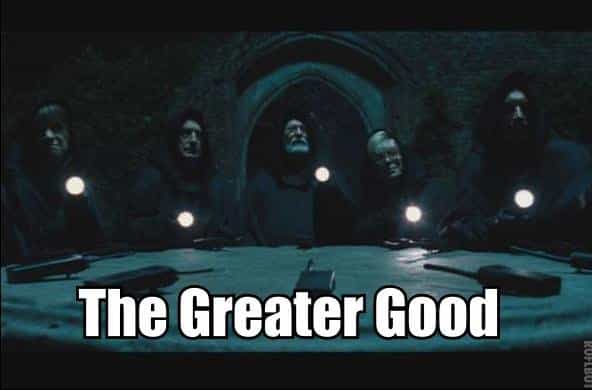The European Union has it sorted. More precisely: the bureaucrats have. Within one generation everything has to go. Let me explain (it’s a long quote, but too good to let it pass; bold in original):
This Communication sets out a European Green Deal for the European Union (EU) and its citizens. It resets the Commission’s commitment to tackling climate and environmental-related challenges that is this generation’s defining task. The atmosphere is warming and the climate is changing with each passing year. One million of the eight million species on the planet are at risk of being lost. Forests and oceans are being polluted and destroyed.
The European Green Deal is a response to these challenges. It is a new growth strategy that aims to transform the EU into a fair and prosperous society, with a modern, resource-efficient and competitive economy where there are no net emissions of greenhouse gases in 2050 and where economic growth is decoupled from resource use.
It also aims to protect, conserve and enhance the EU’s natural capital, and protect the health and well-being of citizens from environment-related risks and impacts. At the same time, this transition must be just and inclusive. It must put people first, and pay attention to the regions, industries and workers who will face the greatest challenges. Since it will bring substantial change, active public participation and confidence in the transition is paramount if policies are to work and be accepted. A new pact is needed to bring together citizens in all their diversity, with national, regional, local authorities, civil society and industry working closely with the EU’s institutions and consultative bodies.
This is something else. The European Committee sees as its task to restructure the whole of the EU top to bottom, because of climate change. Nothing should be left unscrutinised. Everything should be assessed and rerouted.
We could break down this European Green Deal in detail but there really is no need. The fundamental takeaways are easy to sum up:
- The EU and its governing bodies like the EC will frame all economic and other human activities within the climate change narrative
- Everything will subsequently be subordinate to climate change/biodiversity impacts to be continuously assessed on the local, regional, national and European scale
- The result is a full State-directed economy
- Obviously all for the greater good (as so aptly portrayed in the film Hot Fuzz)
Interestingly, the EU envisions thus a total technocratic society where all human activities will be continuously monitored on the very long scale of climate and other impacts.
This is a recipe for disaster (as again played out flawlessly in Hot Fuzz). The EU taps directly into the utopian framework of systemic thinking and global solutions. And this framework is, historically speaking, well known for its massive proneness to complete failure.
And its main flaw is hybris (exaggerated self-pride): the idea that human knowledge and ingenuity can be comprehensive. Even if that is not believed, the long-term aspects will wrap any (scientific) analysis in enough vagueness to warrant precautionary measures ‘forever’. A bureaucratic win-win situation: precaution equals power to regulate.
Let me make one thing absolutely clear: climate change is a non-issue in this European Green Deal. [James Scott ]( “Scott, J.C. 1998. Seeing Like a State. How Certain Schemes to Improve the Human Condition Have Failed. Yale University Press, New Haven.")identifies four historical elements of state-initiated utopian social engineering that fundamentally explains the EU’s drive to this idealised technocratic society:
- The simplified “administrative ordering of nature and society”
- The “high-modernist ideology”, that is the “self-confidence about scientific and technological progress”, a “faith that borrowed the legitimacy of science and technology”, whereby it became “uncritical, unskeptical, and thus unscientifically optimistic about the possibilities for the comprehensive planning of human settlement and production”
- The rise of an “authoritarian state that is willing and able to use the full weight of its coercive power to bring these high-modernist designs into being”
- The rise of a “prostrate [weak] civil society that lacks the capacity to resist these plans”
Precisely these 4 points are made operational in the European Green Deal, hoping that the European citizen is weakened enough by the propagandistic bombardment surrounding this monocratic document.
And, as said, that doesn’t bode well for the European citizen. Quite the contrary. It’s a ‘clusterf*ck’ in the making.
Theologically, the hybris spelt out by the EU is a massive transgression of the Second Commandment: “You shall not make for yourself an image in the form of anything in heaven above or on the earth beneath or in the waters below. You shall not bow down to them or worship them.” (Exodus 20:4,5)
Am I being ‘religious’ here? Absolutely not! The famous Karl Popper was of the conviction that truth can never be within reach of human understanding and action, which, I believe, is an epistemological expression of his Jewish understanding of the Second Commandment. And in some ways, Popper is absolutely spot on. I’ll give the last word to Scott (italics added):
“The great high-modernist episodes … qualify as tragedies in at least two respects. First, the visionary intellectuals and planners behind them were guilty of hubris, of forgetting that they were mortals and acting as if they were gods. Second, their actions, far from being cynical grabs for power and wealth, were animated by a genuine desire to improve the human condition – a desire with a fatal flaw.”
QED.
